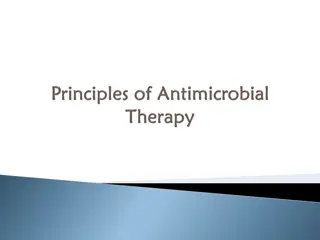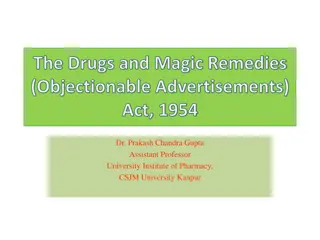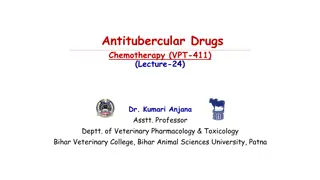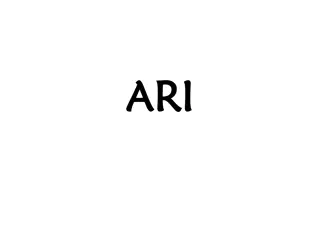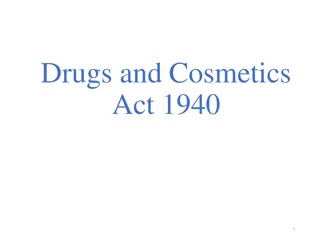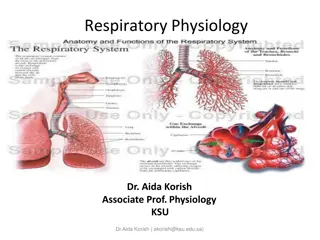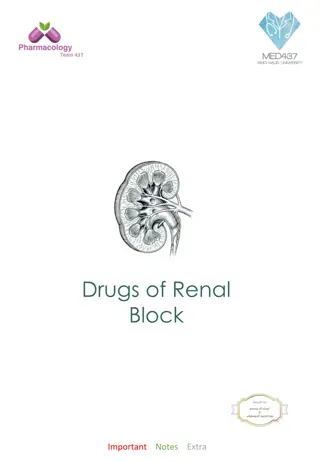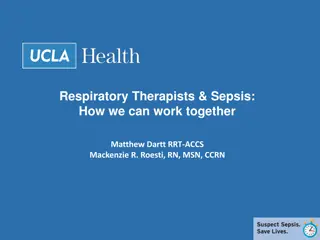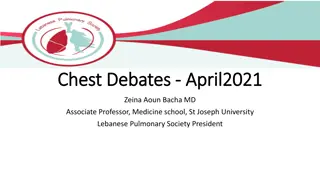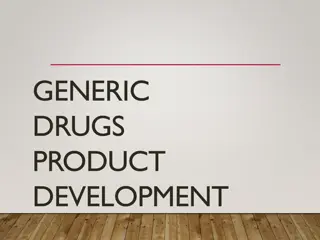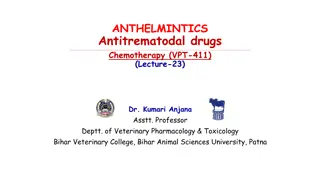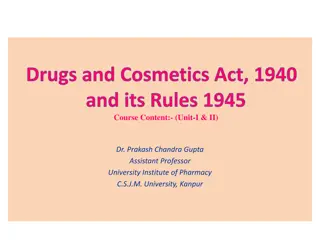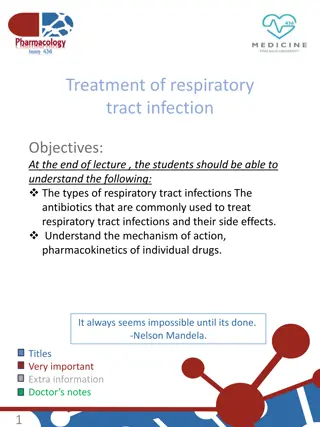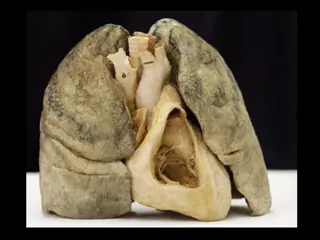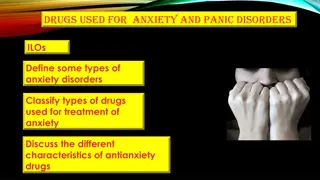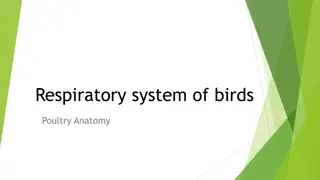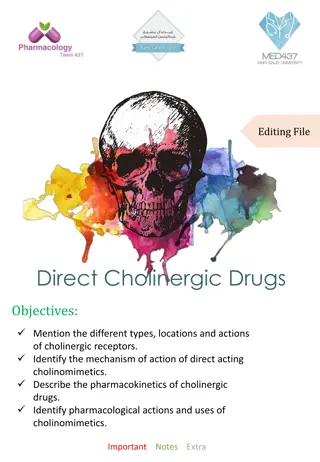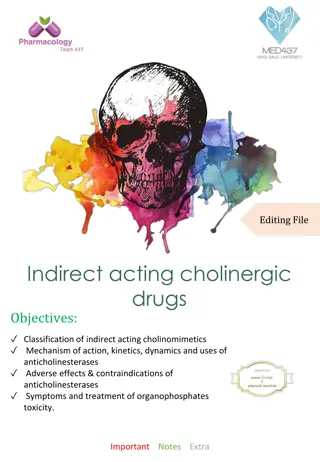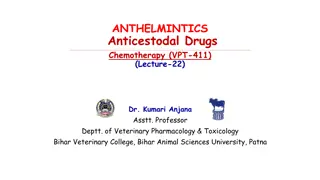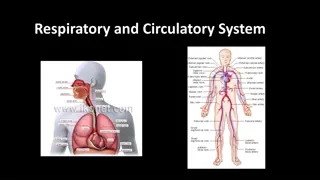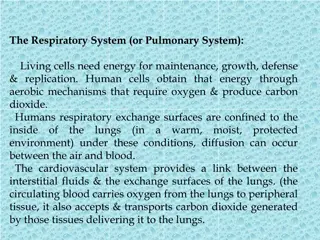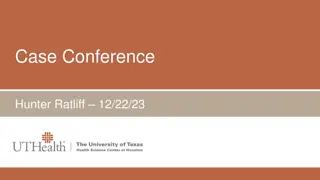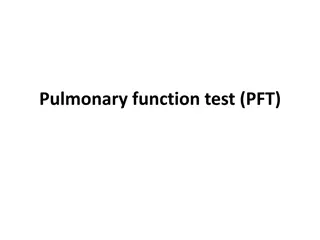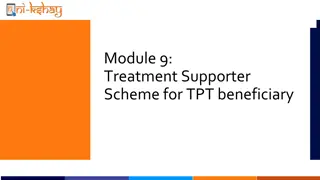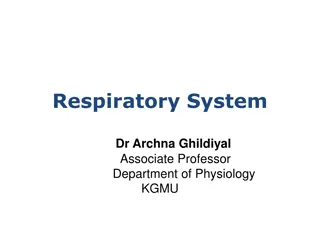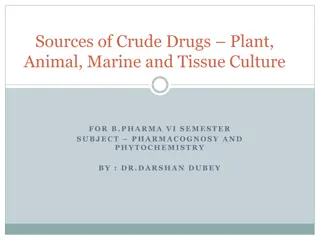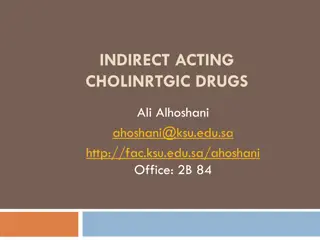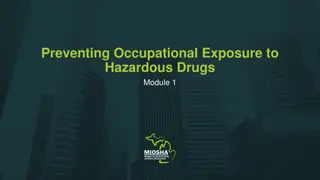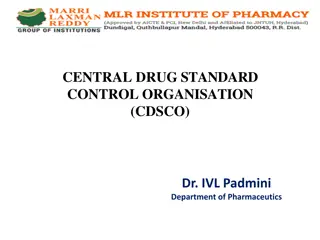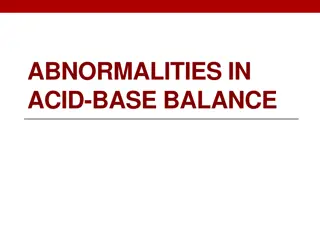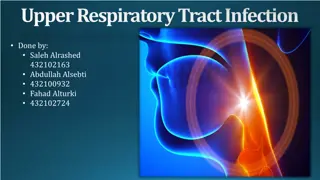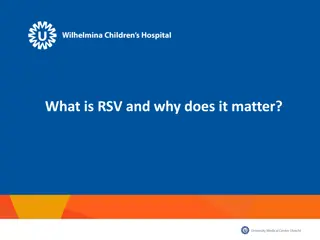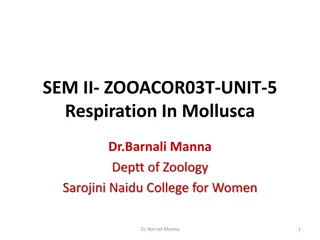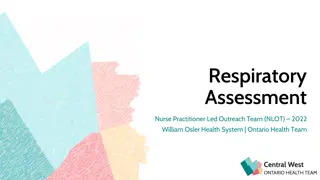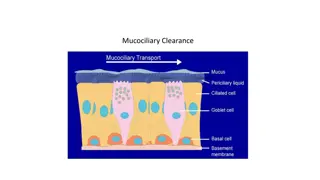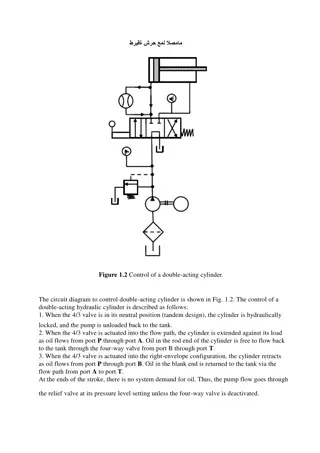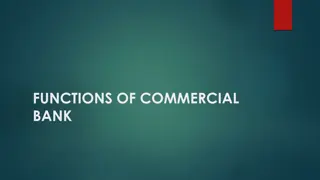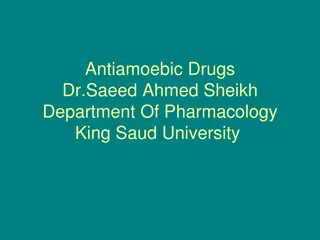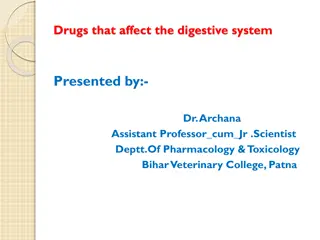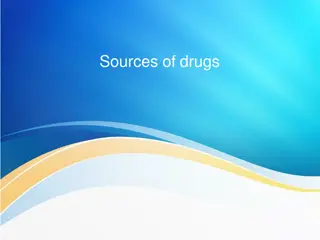Understanding Drugs Acting on the Respiratory System for Effective Treatment
Explore the classification and actions of drugs targeting the respiratory system, including antitussives, expectorants, respiratory stimulants, bronchodilators, and mucolytics. Discover how these medications work to suppress coughs, promote fluidity of bronchial secretions, and stimulate respiratory functions for improved lung health.
Download Presentation

Please find below an Image/Link to download the presentation.
The content on the website is provided AS IS for your information and personal use only. It may not be sold, licensed, or shared on other websites without obtaining consent from the author. Download presentation by click this link. If you encounter any issues during the download, it is possible that the publisher has removed the file from their server.
E N D
Presentation Transcript
Drugs acting on Respiratory System Presented by:- Dr.Archana Assistant Professor_cum_Jr.Scientist Deptt.Of Pharmacology & Toxicology Bihar Veterinary College, Patna
DRUGS ACTING ON RESPIRATORY SYSTEM * Antitussive * Expectorant * Respiratory stimulants * Bronchodilators * Mucolytics
Antitussive Antitussive are drugs that suppress coughing, by reducing activity of cough center in brain. Antitussive agents are used to relieve dry cough. These are of 2 types : 1. Peripherally acting 2. Centrally acting
Continue Peripherally acting It depress tracheal & bronchial afferent sensory nerves and pulmonary stretch receptors, thus prevents activation of medullary cough center. Example Ephedrine it is an alkaloid obtained from Chinese herb Ma huang, it has been employed in Chinese indeginous medicine. It relaxes the bronchial smooth muscle. Benzonatate It is structurally related to local anaesthetic tetracaine, it exerts local anesthetic effects on cough receptors in respiratory tract. 1.
Continue 2. Centrally acting Suppress cough by direct depression of medullary cough center. Examples- Codeine Pholcodeine Butorphanol hydrocodone Noscapine Dextromethorphan
Expectorants Drugs which increases fluidity & volume of bronchial secretions Helps in easy expulsion through coughing Also helps in promoting pulmonary drainage during inflammation there are 4 types 1. Inhalation Expectorants 2. Sedative Expectorants 3. Stimulant Expectorants 4. Anodyne Expectorants
Continue Inhalation Expectorants Increase bronchial secretion by local action Eg.- Eucalyptus Oil, Turpentine Oil. 2. Sedative Expectorants stimulate mucus secretion in bronchi, protects & reduce acute inflammation in Respiratory passage. a. Saline Expectorants increase mucus from GIT. Eg. Ammonium Chloride, Potassium Iodide b. Demulcent Expectorants soothening action in upper respiratory tract. Eg. Balsam of Tolu, Vasaka syrup. c. Nauseant Expectorants increase respiratory secretions by nausea, Eg. Ipecac 1.
Stimulant & Anodyne Expectorants 3. Stimulant Expectorants stimulate & promote repair of chronic inflammatory process. Eg. Guaiacol, Guaifensin, Eucalyptus Oil, Turpentine Oil Anodyne Expectorants Extensively increase respiratory secretion through GIT. Eg. Camphorated tincture of opium(Paregoric).
Bronchodilators Drugs that relax Bronchial smooth muscles, dilate respiratory passage & relive bronchial spasm. Classification based on mode of action A. 2-adrenoceptor agonists salbutamol, terbutaline bambuterol. B. Xanthines/Methylxanthines Direct relaxant action on bronchial smooth muscles caffeine, aminophylline & theophylline. C. Anticholinergic act by blocking cholinergic muscarinic receptors Ipratropium
Continue D. Antihistamines (H1 Antagonists) Promethazine, Diphenhydramine. E. Cromolyn inhibit histamine & leukoriene release F. Cysteinyl-Leukotriene Receptor antagonists act by preventing Leukotriene induced bronchoconstriction Zafirlukast, Montelucast G. Anti-inflammatory agents Act by reducing formation of cytokines, Eg. Prednisolone.
Respiratory Stimulant (Analeptics) Drugs which cause stimulation of depressed respiration a. Doxapram drug of choice in emergency cases, act by stimulation of respiration. b. Nikethamide First respiratory stimulant. c. Methyl Xanthines Caffeine, Aminophylline.
Mucolytics These are the drugs which loosen or break viscous or inspissated pulmonary secretion to facilitate expectorations. Eg- Bromhexine (Adhatoda Vasica) Acetyl cysteine


